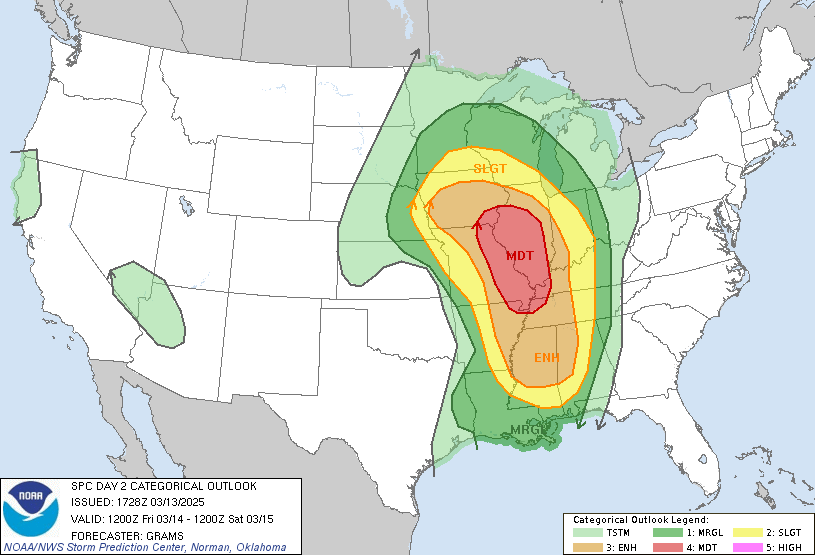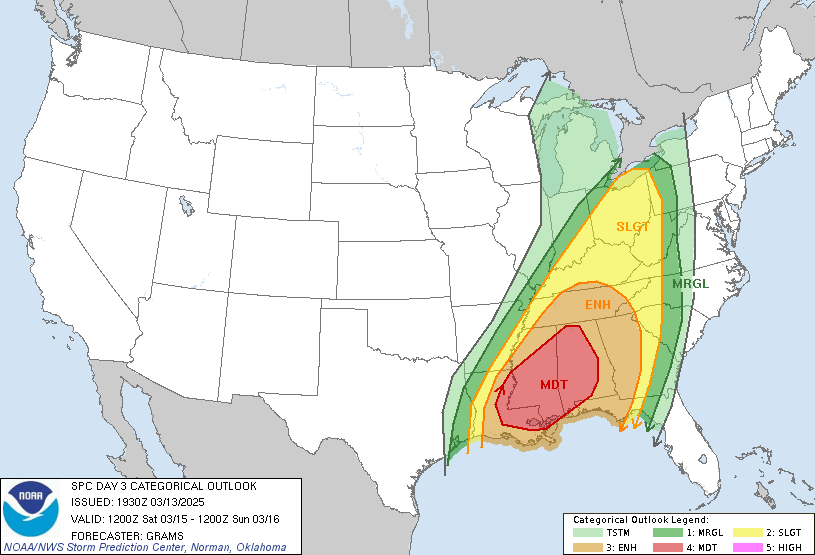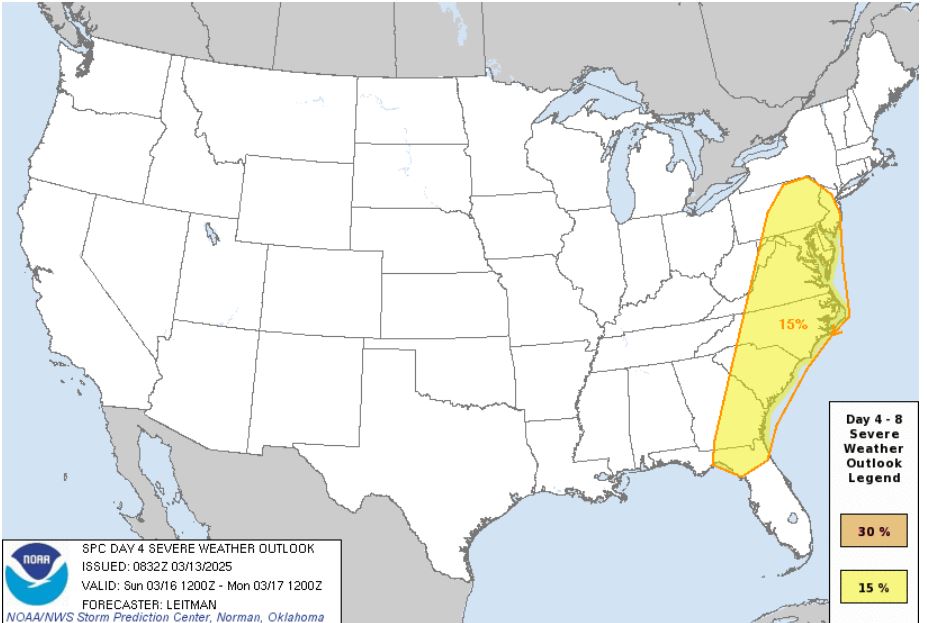While the Southeast can get severe weather any month of the year, the highest likelihood is typically in the March through May period. Over the next few days, a large area of low pressure in the central U.S. will set up conditions that are favorable for the development of severe weather here in the Southeast. Winds ahead of the low will blow warm and moist air into the region from the Gulf, while the air at 30,000 feet will be blowing roughly west to east. The change in wind direction with height can help tornadoes and severe weather to develop.
On Friday March 14, the highest likelihood of severe weather will be in an area stretching south from Iowa to Mississippi. A line of strong storms will move through the area during the day on Friday and Saturday. There could be individual strong storms out ahead of the line as well. The line is expected to move east through Alabama on Saturday during the day and is likely to cross into NW Georgia by late Saturday evening (3/15) and will move through the state overnight, reaching the southeast corner of GA on Sunday morning or early afternoon (3/16). Everyone should be prepared to get warnings through a NOAA weather radio or cell phone, but they have to be turned on and the volume has to be high so they can be heard, especially for those areas that will be the most likely to experience severe weather overnight in Georgia. Do not count on outdoor sirens to warn you because many areas do not have them and you often cannot hear them from inside a building! If you expect to experience the line of storms on Sunday morning, check to see where the storms are before you head out to church or the golf course and be prepared to shelter in place. Fortunately, the storms often weaken overnight due to the lack of solar heating, but some could still be severe.
If severe weather occurs, make sure you get to a safe place inside a building, preferably on the lowest level in a room with no windows. It’s a good idea to put pillows and helmets to protect your head in the shelter area so you have them ready if needed. It is not safe to be in a car or mobile home because they are likely to get lofted into the air and destroyed when they land. Identifying a safe place now will probably come in handy again later this spring when later rounds of severe weather occur. Make sure your family and your coworkers or employees know where to find shelter too.


